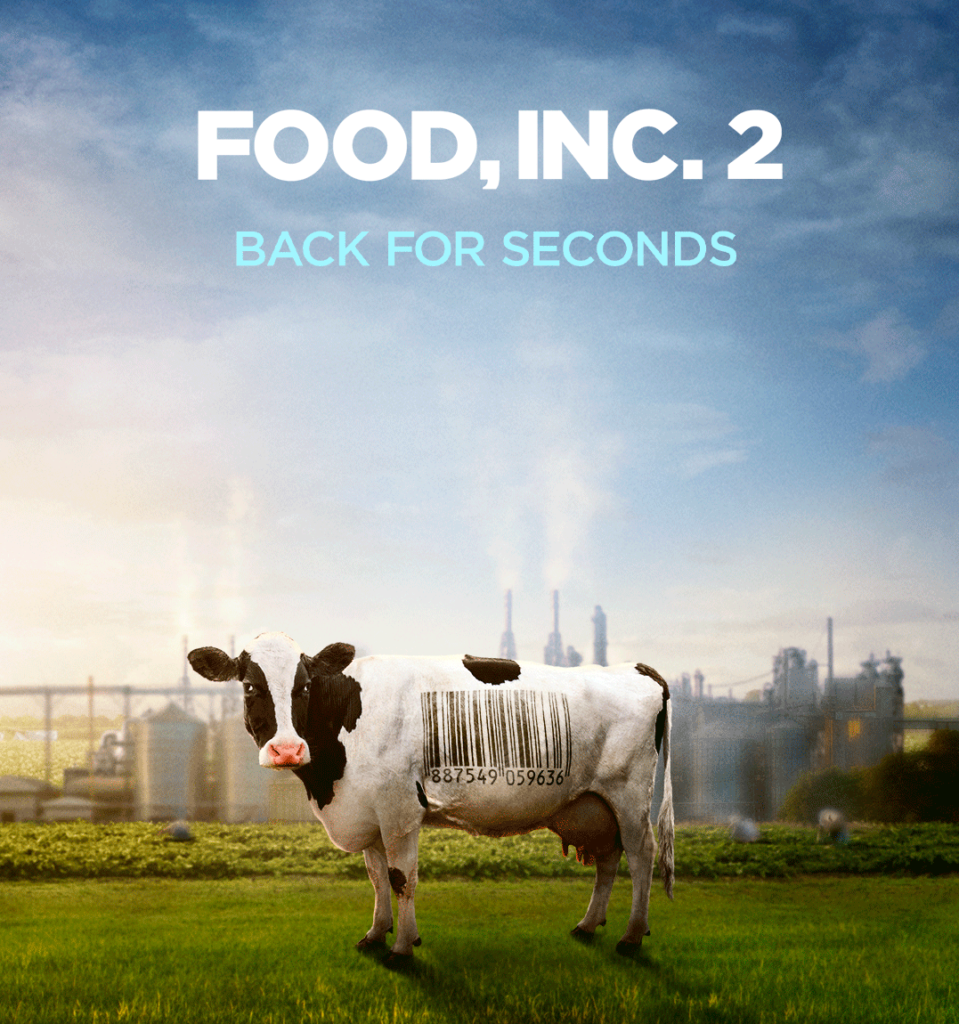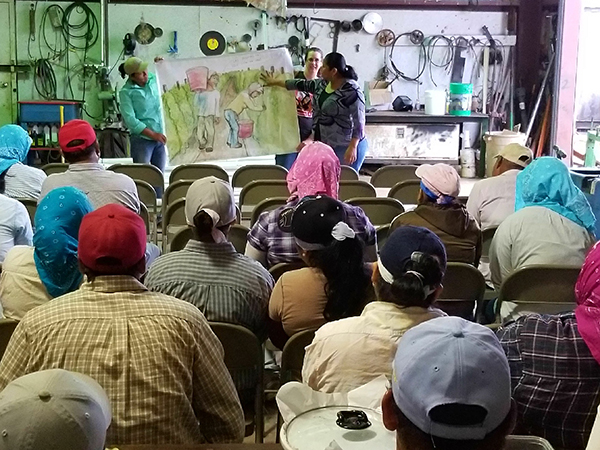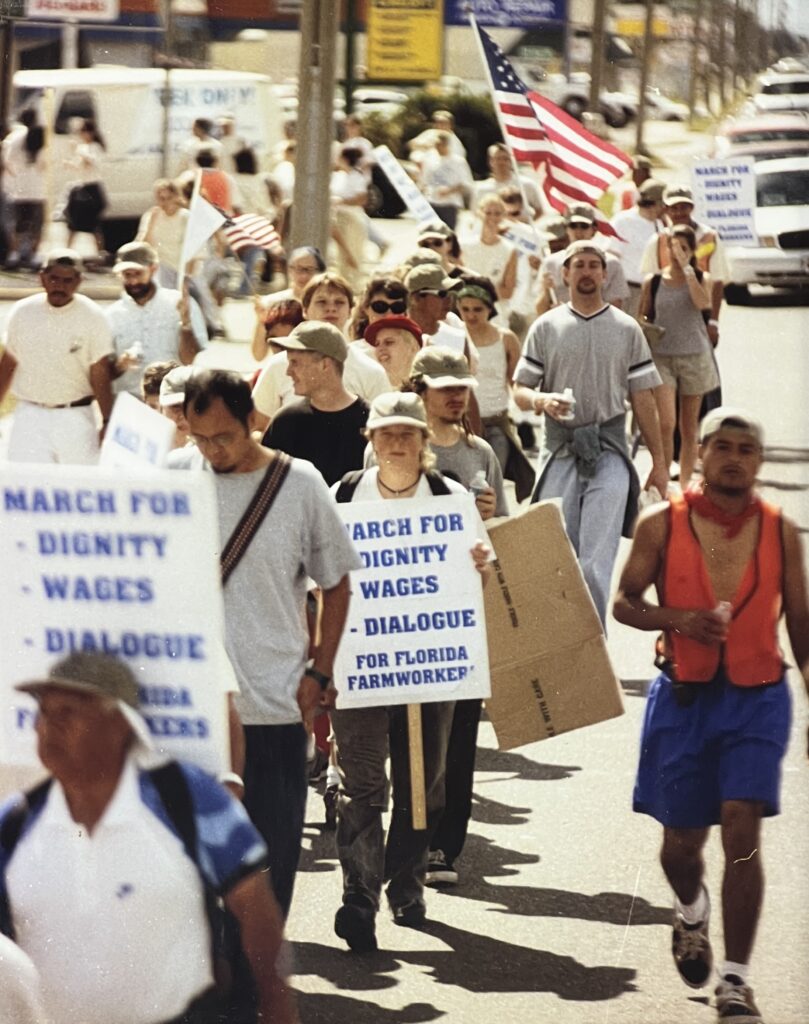
Newly released book — including chapters from Eric Schlosser, Michael Pollan, and Senator Cory Booker — to accompany spring release of sequel to Oscar-nominated, Emmy Award-winning documentary Food, Inc.
CIW: “Through the unrelenting struggle and sacrifice of tens of thousands of workers and their consumer allies, the CIW’s successful efforts have transformed an industry once dubbed ‘ground zero for modern-day slavery’ by federal prosecutors into what one expert called ‘The best working environment in American agriculture’ on the front page of the New York Times…”
“… Refusing to be trapped by poverty and powerlessness, they organized in their own community and educated consumers across the country, faced off against some of the world’s largest corporations, and won. In the process, those same farmworkers created a new model for the protection of human rights in corporate supply chains globally, a model known today as worker-driven social responsibility (WSR). ”
The new book “Food, Inc. 2: Inside the Quest for a Better Future for Food” — published last month ahead of the spring release of the long-awaited sequel to the 2008 Oscar-nominated documentary “Food, Inc.” — includes a chapter on the remarkable history of the Coalition of Immokalee Workers and the groundbreaking Fair Food Program that is a must-read for members of the Fair Food Nation, whose tireless support helped end generations of farm labor abuse, transform an industry, and launch a new model for human rights protection in corporate supply chains around the globe!
The newly published book is a companion to the highly anticipated documentary film Food, Inc. 2. The film features famed food writers Michael Pollan and Eric Schlosser as they take us on a wide-ranging tour of our broken food system. From factory farms to monopolies creating fragile supply chains and industrial scale farming exploiting farmworkers, the film provides an unflinching look at U.S. agriculture, but also provides several vital rays of hope. Shining brightly among those rays are the CIW and the Fair Food Program.
The story of the Fair Food Program and the CIW’s larger struggle for dignity in the fields is brilliantly told by the CIW’s own Gerardo Reyes Chavez in the film, himself a farmworker for more than a decade. Through extended interviews, Gerardo walks the viewer through the CIW’s Campaign for Fair Food, launched in 2001, the birth of the Presidential Medal-winning Fair Food Program in 2011, and the urgent need to expand this uniquely successful worker-driven program as far and wide as possible today. With an eye to practical, proven solutions to the food system’s many ills, “Food, Inc. 2” and its companion book champion the Fair Food Program as the answer to preventing forced labor and other extreme abuses in agriculture, with a long and unequaled track record of results.
We’re including an excerpt of our chapter below. If you’d like to read the rest of the chapter and the book — which includes chapters from Michael Pollan, Eric Schlosser, and Senator Cory Booker — you can purchase it here or look for a copy at your local library!
A Human Rights Revolution Born in the Fields of Florida
By the Coalition of Immokalee Workers
In 1993, farmworkers rose up in the dusty streets of a dirt-poor Florida town by the strange name of Immokalee and declared a general strike. In a shock to the sleepy farming community unlike anything in its history, thousands of workers occupied the massive parking lot at the center of town— where normally labor buses would pick up workers before dawn each day to ferry them out to the fields— and demanded an end to the systematic violation of their fundamental human rights. The Coalition of Immokalee Workers was born in those streets. Today, thirty years later, through the unrelenting struggle and sacrifice of tens of thousands of workers and their consumer allies, the CIW’s successful efforts have transformed an industry once dubbed “ground zero for modern-day slavery” by federal prosecutors into what one expert called “the best working environment in American agriculture” on the front page of the New York Times. The product of that struggle— and the means by which CIW achieved that transformation, the Fair Food Program— was forged by farmworkers themselves.
A diverse coalition of Mexican, Guatemalan, and Haitian immigrants grew tired of being beaten, raped, and robbed by their bosses and came together behind a vision of a more modern, more humane industry. Refusing to be trapped by poverty and powerlessness, they organized in their own community and educated consumers across the country, faced off against some of the world’s largest corporations, and won. In the process, those same farmworkers created a new model for the protection of human rights in corporate supply chains globally, a model known today as worker-driven social responsibility (WSR). WSR harnesses the unprecedented buying power of the world’s billion dollar brands, from McDonald’s to Walmart, and reverses the impact of that power, improving wages and working conditions in their suppliers’ operations rather than impoverishing the lives of the millions of workers around the globe who put food on our tables and clothes on our backs. The general strike that morning nearly thirty years ago in Immokalee — a protest that barely even made the local papers — ended up being the first volley in what has become a growing revolution in the world of business and human rights.
THE FAIR FOOD PROGRAM
The Fair Food Program is a unique human rights protection initiative, developed by workers for workers in order to safeguard their basic human rights, and backed by major corporate buyers who agree to only source produce from farms that comply with the program’s code of conduct. On FFP farms, workers are protected from abuses like forced labor, sexual harassment, and wage theft through several interlacing mechanisms designed to monitor and enforce the program’s standards, including: worker‑to‑worker education on their rights under the program’s code of conduct; a 24‑7 complaint investigation and resolution process, where workers can report violations free from the fear of retaliation; regular and comprehensive farm audits; and legally binding agreements with fourteen of the world’s largest buyers of produce that serve to hold growers accountable for violations through swift market consequences for abuse. The elements of the FFP combine, as pillars, to provide a stable structure protecting workers from exploitation and providing an environment of respect in which they can work with dignity.
If a zero-tolerance violation such as forced labor were to be found on a participating farm, that grower would be automatically barred from selling its produce to fourteen of the world’s largest buyers, creating a powerful market incentive that, for workers under the FFP’s protections, has effectively eliminated the most egregious abuses that have plagued US agriculture for generations. It is this market incentive— or, as supply-chain experts call it, the “power of the purchasing order”— of big buyers like Walmart, Whole Foods, Taco Bell, and McDonald’s that truly sets the Fair Food Program apart. Without the knowledge that failure to comply with the program’s human rights standards will cost them business, suppliers will always balk at making uncomfortable changes, no matter how necessary. Quite simply, those changes would have been made long ago— and some other industry would have won the ignominious moniker of “ground zero for modern-day slavery”— if that were not the case.

Stay tuned for more details about the upcoming documentary!

